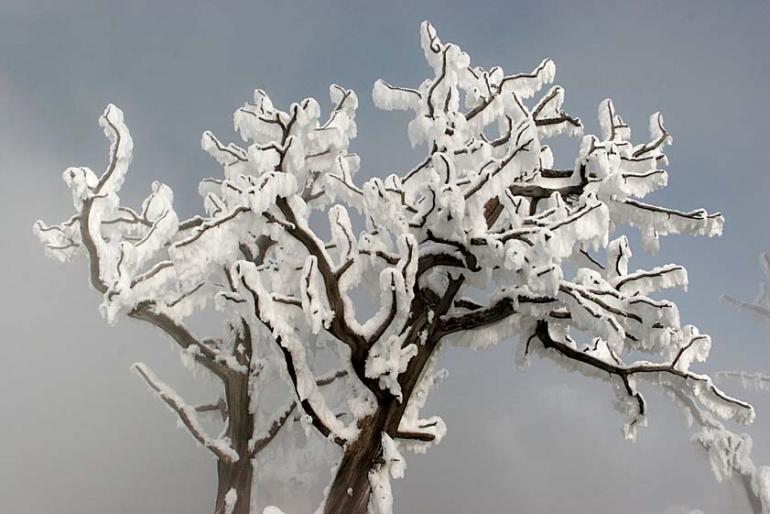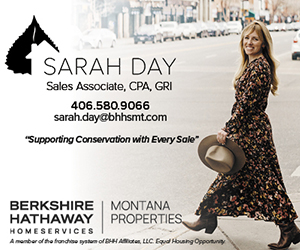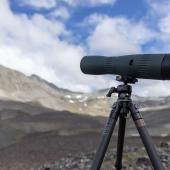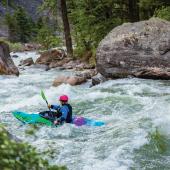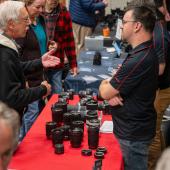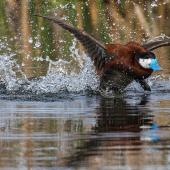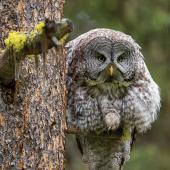Out in the Cold
When you gear up for a winter photo expedition, the first thing to consider is you. If you’re cold, you won’t be able to focus on capturing a good photo. Dress so that you can put on or take off layers as needed. Focus on being both warm and dry.
Winter days are often overcast. Taking a good photo can mean a long wait for the perfect light to break through the clouds, but once you capture the drama of dark winter clouds suddenly lit with a burst of sun, you’ll forget the wait. Then, expose for highlights. Camera meters tend to change sparkling snow scenes to a dingy, midgray tone. To compensate, manually overexpose by one to two stops or set your program mode to the snow/surf mode to get nice whites in your image.
The color of snow changes depending on the light. In deep shadows under pine trees, it’s usually blue. Emphasizing those tones communicates a sense of cold.
Remember, a viewer’s eye goes to white or bright areas first. Detail is hard to retain in those areas. If the foreground of your shot is bright, that’s where a viewer will look, possibly missing your intended subject. Use color casts, shadows, and highlights to direct the viewer’s eye to your subject.
Here are five more quick, practical tips from the Bozeman's Glass House Women's Photography Group:
1. Batteries work best when warm and fully charged. Bring a spare set and keep them in an inside pocket, close to your body.
2. Avoid extra moisture. Don't get your breath frozen on and in your camera, especially the back of your digital. Keep a microfiber cloth handy just in case.
3. Do not put your camera through drastic temperature changes. Place it in a tightly sealed plastic bag for temperature adaptation.
4. Insulate tripod legs to keep your hands from becoming too cold when you touch them.
5. In snow, keep your whites white by metering with a gray card or spot meter a neutral subject.
The great thing about winter photography is that when you make the effort to be out, there won’t be hordes of photographers going after the same shot and getting in your way. Instead, you’ll find glorious expanses of snow unmarked by human activity. Enjoy the flakes!
Jenna Caplette is a writing coach and aspiring photographer who teaches the "Writing from Photographs" class at F-11 Photographic Supplies in Bozeman. Read other tips at f11photo.com.


